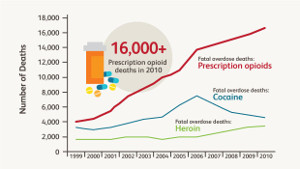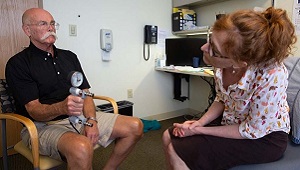Yu-Ru Su, PhD
Biography
Yu-Ru Su, PhD, specializes in statistical genetics, survival analysis, and functional/longitudinal data analysis. Her research interests cover a wide spectrum of statistical methods for modern biomedical studies, especially in cancer prevention and precision medicine. Her current research focuses on integrating information in genetics, environmental, and clinical data to develop precise risk models of cancers with a goal of promoting personalized prevention/surveillance strategies.
Before joining Kaiser Permanente Washington Health Research Institute, Dr. Su received her postdoctoral research training at Fred Hutchinson Cancer Research Center, where she was promoted to a staff scientist position. During her time at Fred Hutch, she was part of the Genetics and Epidemiology of Colorectal Cancer Consortium (GECCO), one of the world’s leading collaborations in colorectal cancer research. At GECCO, she conducted complex analyses aiming to discover genetic risk factors and interactions between genetics and environmental factors for colorectal cancer. These findings are essential for developing risk prediction models. She also developed novel and computationally feasible statistical methods via the kernel machine framework for detecting novel genetic associations with complex diseases by bringing in functional information from multi-omics data. Another field of her methods research focuses on statistical approaches for functional association between functional exposures and a scalar outcome. Dr. Su developed a new dimension reduction technique and a testing approach for inferences on the infinite-dimensional association. The application of these methods in modern genetic and aging studies is leading to a better understanding of underlying mechanism of complex diseases, including cancer and dementia.
Dr. Su received her PhD in biostatistics from the University of California, Davis. Her dissertation focused on statistical estimating procedures used to infer associations of survival outcomes and complex exposures. An example is time-varying covariates, based on incomplete data such as intermittently measured longitudinal covariates and left-truncation or doubly-censored survival outcomes. She investigated asymptotic properties of the proposed methods via modern semiparametric theory and proposed complex algorithms for handling incompleteness in data.
At Kaiser Permanente Washington Health Research Institute, Dr. Su collaborates with scientists from multiple disciplines to pursue answers and solutions to scientific questions related to breast cancer, Alzheimer’s disease and dementia, and opioid use disorders. She actively collaborates with the Breast Cancer Surveillance Consortium to investigate the screening performance of multiple screening modalitiesin women with and without breast cancer history, to build reliable risk prediction models and personalized strategies for screening and surveillance strategies. She also closely works with the Adult Change in Thought (ACT) study to understand the connection between dementia and other clinical and health conditions.
RESEARCH INTERESTS AND EXPERIENCE
Recent Publications
Stern MC, Sanchez Mendez J, Kim AE, Obón-Santacana M, Moratalla-Navarro F, Martín V, Moreno V, Lin Y, Bien SA, Qu C, Su YR, White E, Harrison TA, Huyghe JR, Tangen CM, Newcomb PA, Phipps AI, Thomas CE, Kawaguchi ES, Lewinger JP, Morrison JL, Conti DV, Wang J, Thomas DC, Platz EA, Visvanathan K, Keku TO, Newton CC, Um CY, Kundaje A, Shcherbina A, Murphy N, Gunter MJ, Dimou N, Papadimitriou N, Bézieau S, van Duijnhoven FJB, Männistö S, Rennert G, Wolk A, Hoffmeister M, Brenner H, Chang-Claude J, Tian Y, Le Marchand L, Cotterchio M, Tsilidis KK, Bishop DT, Melaku YA, Lynch BM, Buchanan DD, Ulrich CM, Ose J, Peoples AR, Pellatt AJ, Li L, Devall MAM, Campbell PT, Albanes D, Weinstein SJ, Berndt SI, Gruber SB, Ruiz-Narvaez E, Song M, Joshi AD, Drew DA, Petrick JL, Chan AT, Giannakis M, Peters U, Hsu L, Gauderman WJ Genome-wide gene-environment interaction analyses to understand the relationship between red meat and processed meat intake and colorectal cancer risk 2024 Mar;33(3):400-410. doi: 10.1158/1055-9965.EPI-23-0717. Epub 2023-12-19. PubMed
Kerlikowske K, Zhu W, Su YR, Sprague BL, Stout NK, Onega T, O'Meara ES, Henderson LM, Tosteson ANA, Wernli K, Miglioretti DL Supplemental magnetic resonance imaging plus mammography compared with magnetic resonance imaging or mammography by extent of breast density 2024 Feb 8;116(2):249-257. doi: 10.1093/jnci/djad201. Epub 2023-10-27. PubMed
Lee CS, Ferguson AN, Gibbons LE, Walker R, Su YR, Krakauer C, Brush M, Kam J, Larson EB, Arterburn DE, Crane PK, Eye ACT Study Group: Eye Adult Changes in Thought (Eye ACT) Study: Design and Report on the Inaugural Cohort 2024 Jan;100(1):309-320. doi: 10.3233/JAD-240203. PubMed
van den Puttelaar R, Meester RGS, Peterse EFP, Zauber AG, Zheng J, Hayes RB, Su YR, Lee JK, Thomas M, Sakoda LC, Li Y, Corley DA, Peters U, Hsu L, Lansdorp-Vogelaar I Risk-stratified screening for colorectal cancer using genetic and environmental risk factors: A cost-effectiveness analysis based on real-world data 2023 Dec;21(13):3415-3423.e29. doi: 10.1016/j.cgh.2023.03.003. Epub 2023-03-09. PubMed
Thomas M, Su YR, Rosenthal EA, Sakoda LC, Schmit SL, Timofeeva MN, Chen Z, Fernandez-Rozadilla C, Law PJ, Murphy N, Carreras-Torres R, Diez-Obrero V, van Duijnhoven FJB, Jiang S, Shin A, Wolk A, Phipps AI, Burnett-Hartman A, Gsur A, Chan AT, Zauber AG, Wu AH, Lindblom A, Um CY, Tangen CM, Gignoux C, Newton C, Haiman CA, Qu C, Bishop DT, Buchanan DD, Crosslin DR, Conti DV, Kim DH, Hauser E, White E, Siegel E, Schumacher FR, Rennert G, Giles GG, Hampel H, Brenner H, Oze I, Oh JH, Lee JK, Schneider JL, Chang-Claude J, Kim J, Huyghe JR, Zheng J, Hampe J, Greenson J, Hopper JL, Palmer JR, Visvanathan K, Matsuo K, Matsuda K, Jung KJ, Li L, Le Marchand L, Vodickova L, Bujanda L, Gunter MJ, Matejcic M, Jenkins MA, Slattery ML, D'Amato M, Wang M, Hoffmeister M, Woods MO, Kim M, Song M, Iwasaki M, Du M, Udaltsova N, Sawada N, Vodicka P, Campbell PT, Newcomb PA, Cai Q, Pearlman R, Pai RK, Schoen RE, Steinfelder RS, Haile RW, Vandenputtelaar R, Prentice RL, Küry S, Castellví-Bel S, Tsugane S, Berndt SI, Lee SC, Brezina S, Weinstein SJ, Chanock SJ, Jee SH, Kweon SS, Vadaparampil S, Harrison TA, Yamaji T, Keku TO, Vymetalkova V, Arndt V, Jia WH, Shu XO, Lin Y, Ahn YO, Stadler ZK, Van Guelpen B, Ulrich CM, Platz EA, Potter JD, Li CI, Meester R, Moreno V, Figueiredo JC, Casey G, Lansdorp Vogelaar I, Dunlop MG, Gruber SB, Hayes RB, Pharoah PDP, Houlston RS, Jarvik GP, Tomlinson IP, Zheng W, Corley DA, Peters U, Hsu L Combining Asian and European genome-wide association studies of colorectal cancer improves risk prediction across racial and ethnic populations 2023 Oct 2;14(1):6147. doi: 10.1038/s41467-023-41819-0. Epub 2023-10-02. PubMed
Breast Cancer Surveillance
Kaiser Permanente Washington Breast Cancer Surveillance Registry
Kaiser Permanente Washington has been part of the national Breast Cancer Surveillance Consortium since 1994. Learn about the Kaiser Permanente Washington Breast Cancer Surveillance Registry here.
Research

Helping first-time screeners know when to return
Well-timed outreach in print and video can boost awareness of repeat screening for lung cancer, study finds.
addictions

Long-term opioid risks are the focus of $10 million KPWHRI study
Dr. Denise Boudreau launches a collaborative project with Kaiser and other health systems on the safety of long-term prescription opioid use.
aging and geriatrics

The ACT Study: Looking toward the future
At 25 years, the Adult Changes in Thought Study is committed to science, collaboration, and jokes, writes Erin Bowles



